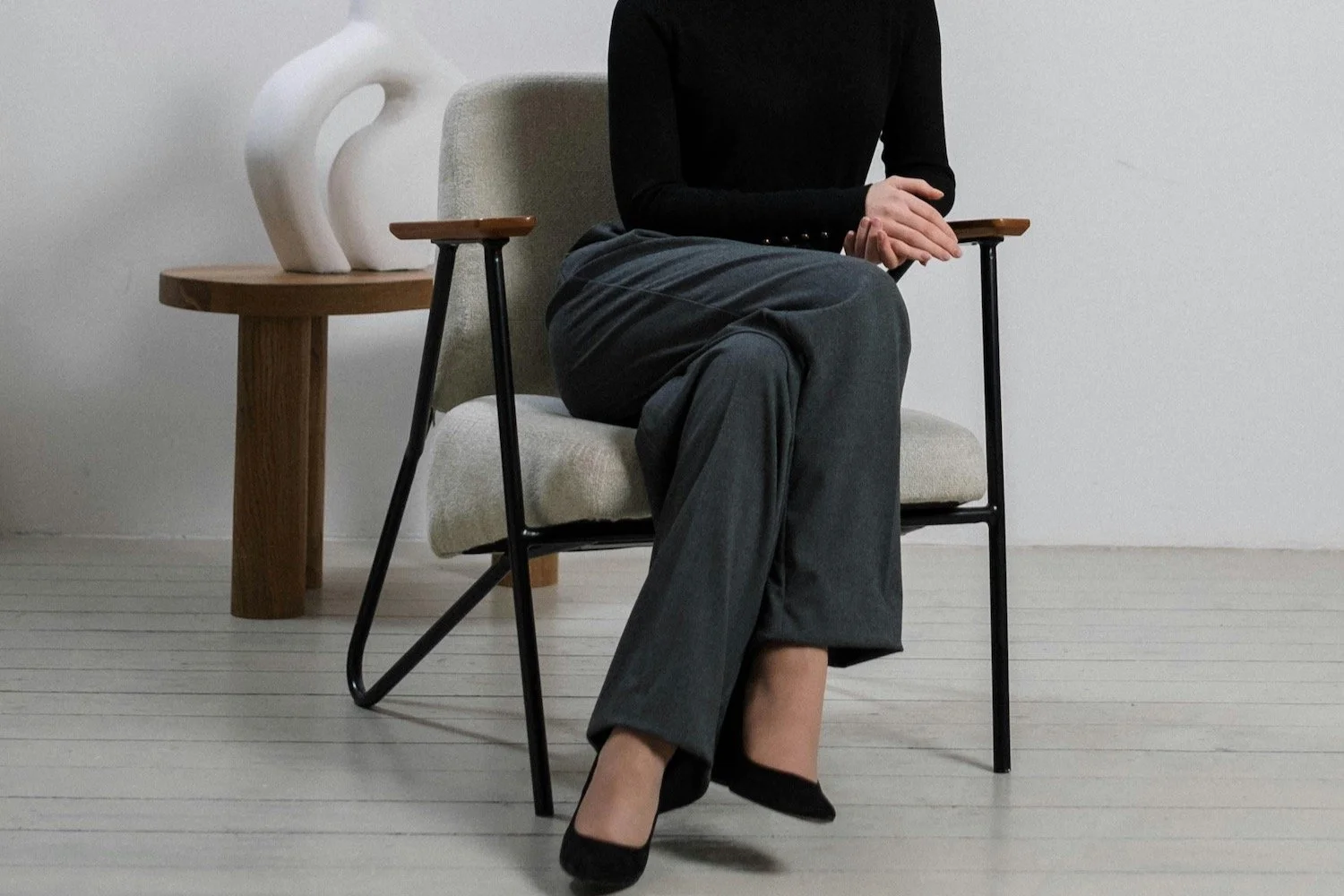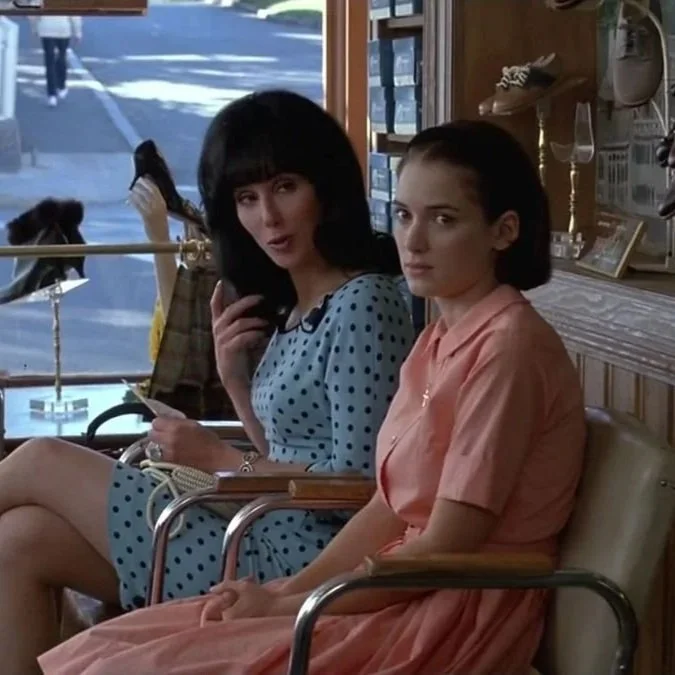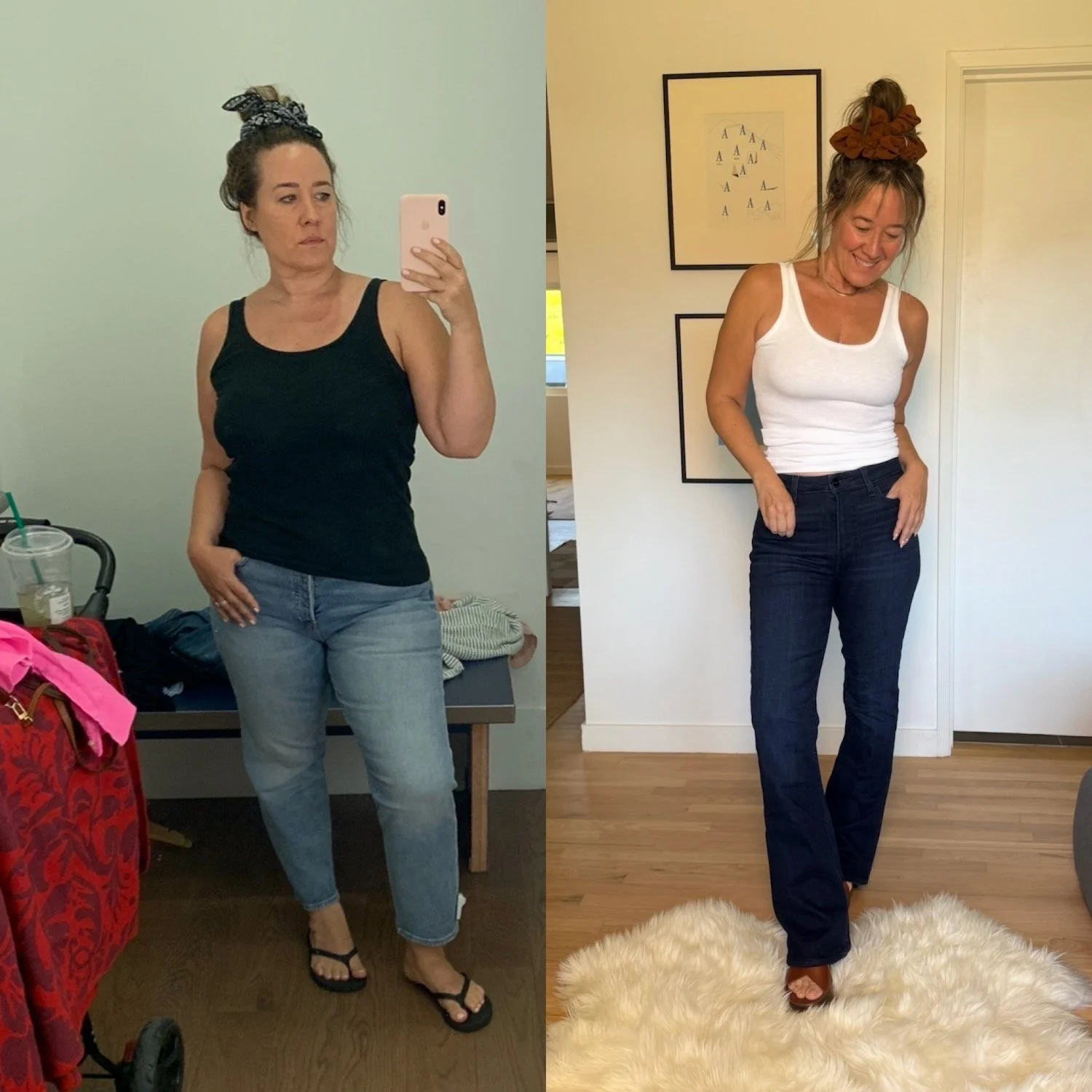Do You Suddenly Have To Pee All The Time? There's A Reason.
…and a way to fix it.
by The Candidly Team
Oh hi. Did you just sit down to read this? How lovely. All cuddled up in an armchair - maybe with a cup of Harney & Sons Victorian London Fog tea? And now just as you’re settling in, for the love of God, you have to pee again.
Well, we’re sorry to say that the frequent urge to pee can be one of those sufficiently irritating symptoms of perimenopause and menopause. It’s called overactive bladder. And here’s what you need to know about it.
Why does this have to happen?
First, to state the obvious, whenever there’s a change in our body or our bodily habits we shouldn’t just assume it’s a sign of menopause. Other things can contribute to the urge to pee and should be talked about with your doc. For example, it can be a sign of a UTI, and your risk of getting a UTI can increase during perimenopause and menopause as well. Other causes can include childbirth, pregnancy, diuretics such as alcohol and caffeine, certain medications, nerve damage that can mess with bladder-to-brain signals, and constipation.
But if your overactive bladder is decidedly the result of hormonal changes related to menopause, here’s what’s probably going down. As estrogen levels drop our pelvic area can weaken thus leading to a feeling like we have to pee suddenly and more frequently.
What are the symptoms of overactive bladder?
In general, urinary symptoms around menopause can include:
Urge incontinence (overactive bladder): that immediate urge to pee and possibly even peeing a bit before you can make it to the bathroom
Stress incontinence: where urine actually leaks out usually when doing something like coughing, laughing or quickly moving
Needing to pee more often
Having sleep interrupted multiple times (think more than twice) to pee
What to do about it:
Let’s start with the proactive, at-home stuff:
Maintaining a healthy weight - it helps relieve bladder pressure.
Kegels and bladder exercises that strengthen those pelvic floor muscles.
Hydrate. We want to avoid constipation as well.
Exercise regularly.
Cut down on alcohol and caffeine.
Avoid smoking.
Keep track of what foods might spark the symptoms. According to Medical News Today, some examples might include tea, coffee, soda, spicy food, citrus, tomatoes, and chocolate.
Stay an extra moment on the toilet to make sure you’ve completely emptied your bladder.
Look at other medical conditions that might be contributing to symptoms such as diabetes.
And here are some things we can get professional help with:
Bladder training: This is typically done with a trained physiotherapist and is basically a technique where you schedule out times you go to the bathroom and not necessarily right when you feel you have to pee. It can eventually train your bladder not to have the impulse to go as often. Do this with professional guidance so you can make sure it’s a method that’s best for your overall health.
Physical therapy for your pelvic floor. It’s a real thing. Possibly a life-changing thing. Read about it HERE.
You can also talk to your doctor about whether prescription medications, medical treatments, hormone replacement therapy or vaginal estrogens might be helpful.
And now for what sort of feels like the biggest thing we can say to you. Don’t beat yourself up about any of this. Half of women can experience actual bladder leaks around menopause. We’re all in this weird, rocky boat together. And we’ll get through it.
Shit, did we just say boat? Now we have to pee again.
This article is for informational purposes only. It is not intended to be used in place of professional advice, medical treatment, or professional care in any way. This article is not intended to be and should not be a substitute for professional care, advice or treatment. Please consult with your physician or healthcare provider before changing any health regimen. This article is not intended to diagnose, treat, or prevent disease of any kind. Read our Terms & Conditions and Privacy Policy.








